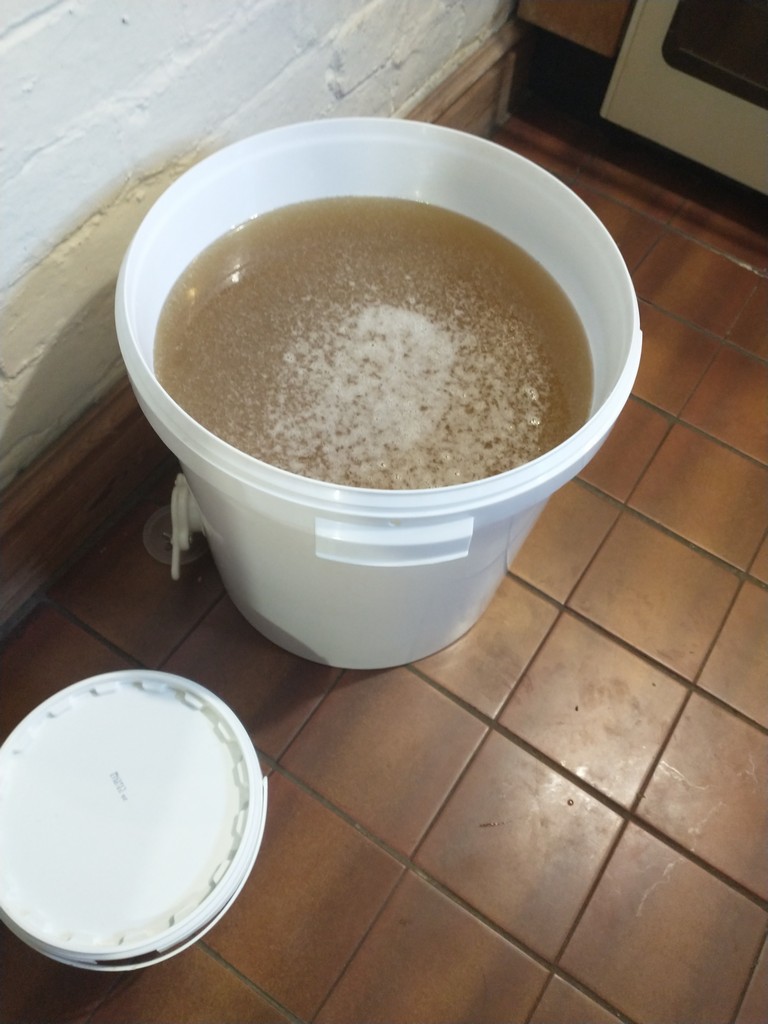On Wednesday the 3rd of December we held our last monthly meeting of 2025. We decided to have a bit of fun having a blind tasting session of honey that people had brought along.
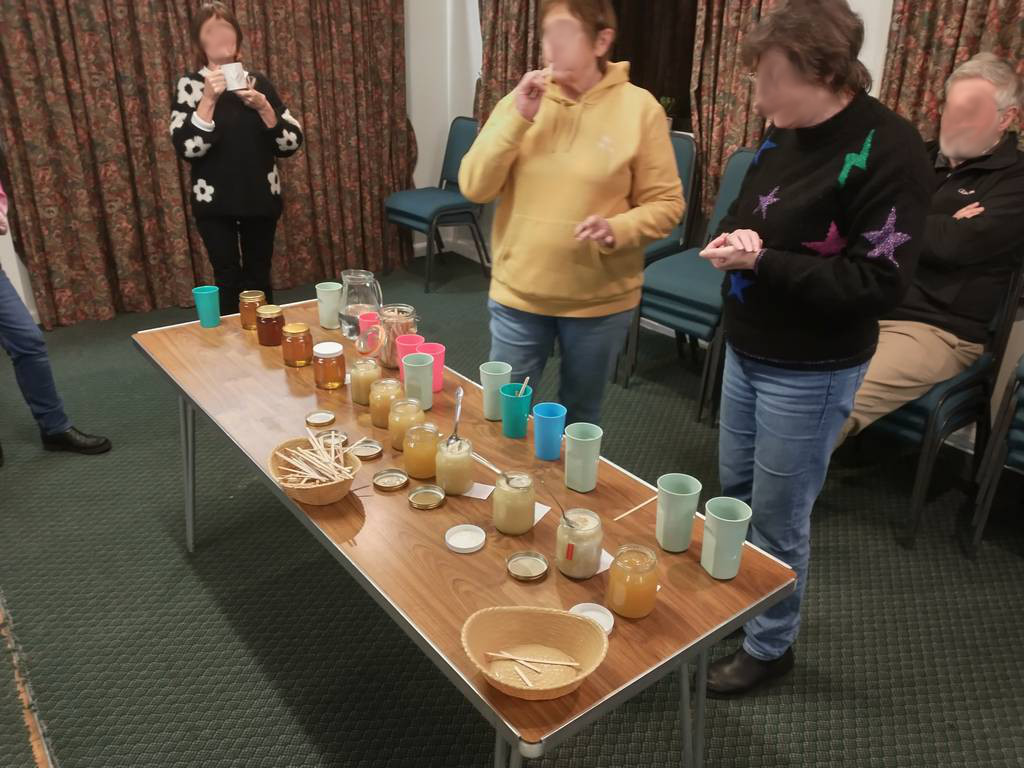
We only had two classes, runny and set. The winner of the runny honey was Greg who had put in a jar of 3 year old honey that was quite dark and predominantly from tree nectar.
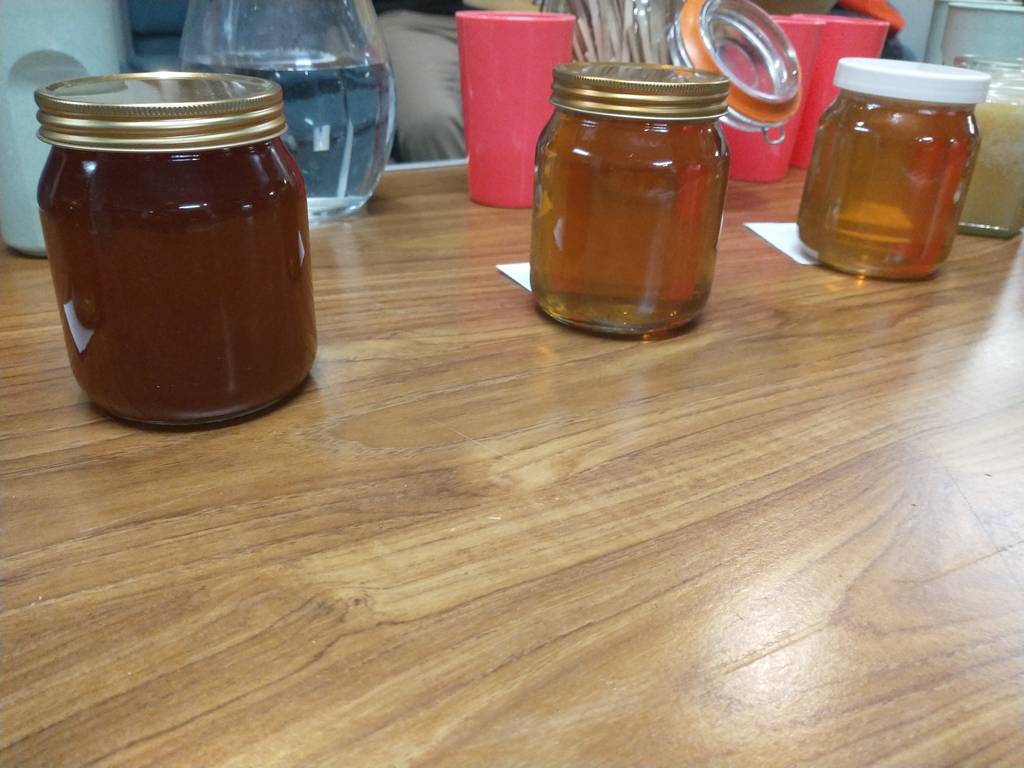
The winner of the set honey was Steve, who's jar had also won second prize in the County show. It was set so hard we had to lever it out with a spoon!
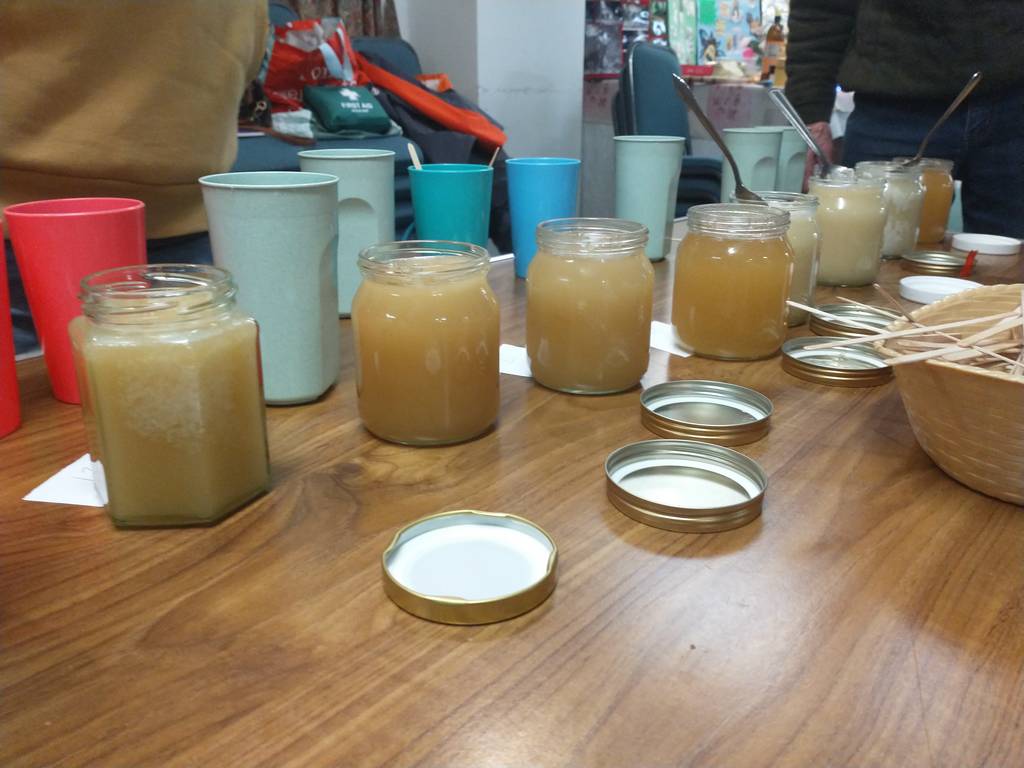
There was also a class for mead, although we only had two entries. The winner was Steve who had entered the smaller bottle.
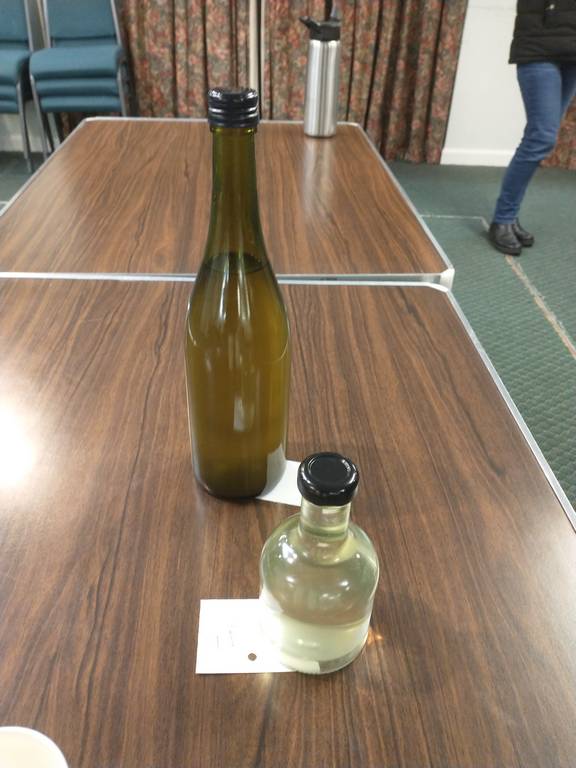
A little celebratory feast was laid out that was enjoyed before finally ending the event by wishing everyone a Happy Christmas and Healthy New Year.
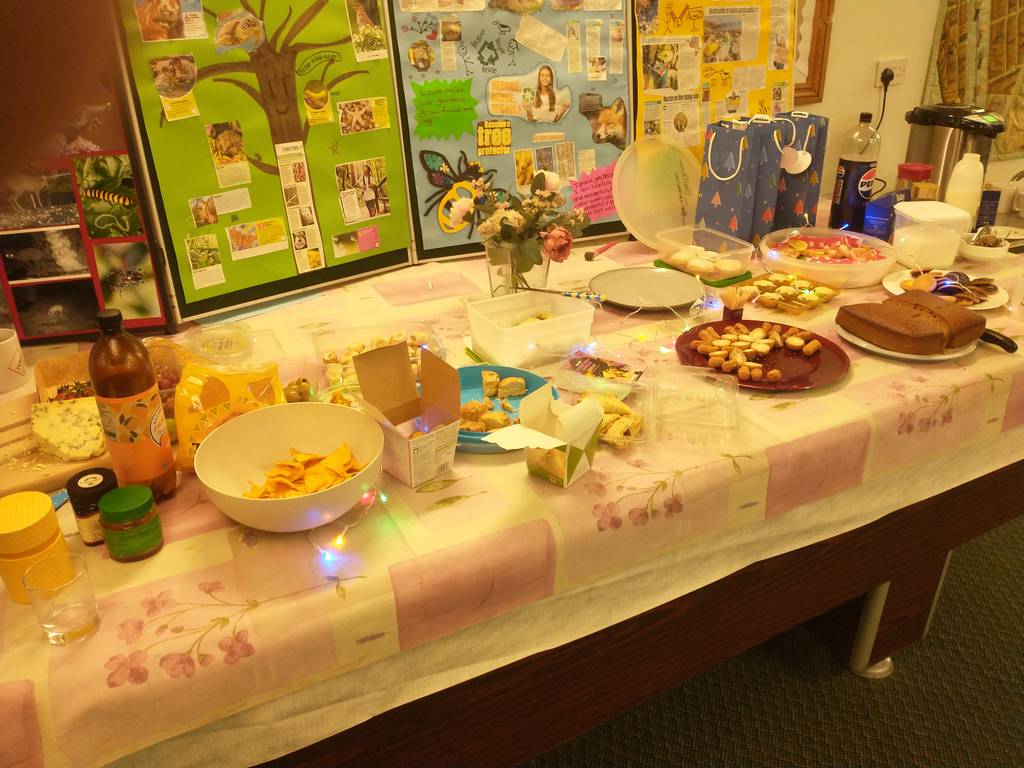
Blog
Prof. Giles Budge Lecture on CBPV
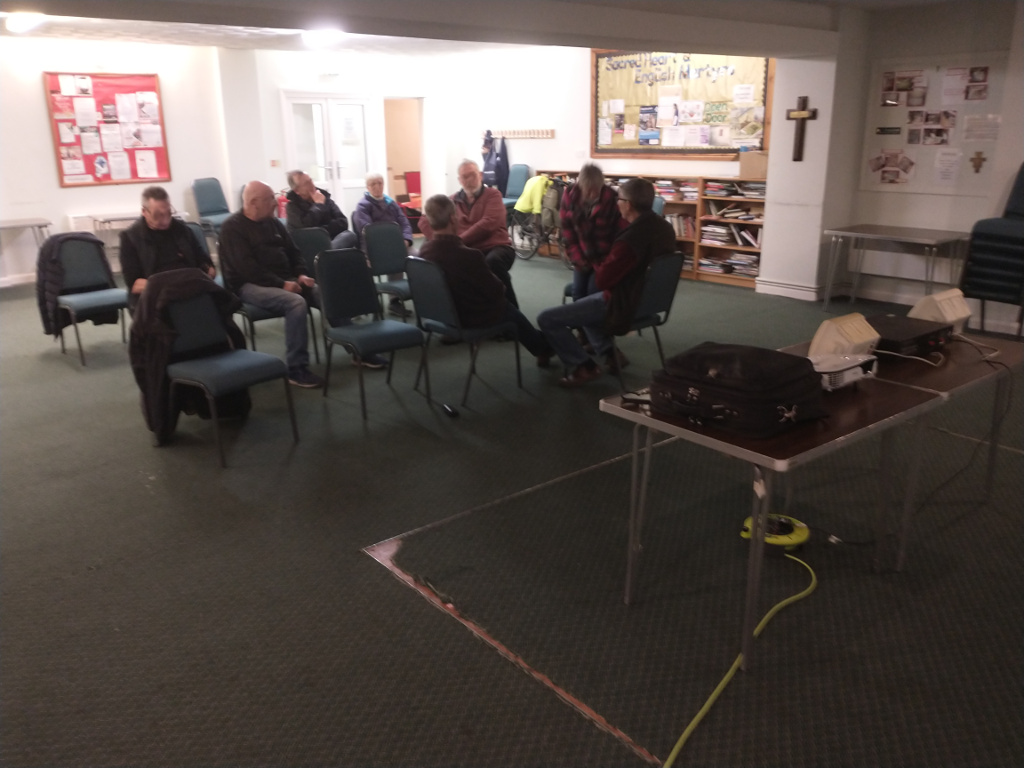
At our November meeting we were lucky enough to be able to watch a pre-recorded presentation given by Prof. Giles Budge. The presentation contained a lot of information about the work and research that is taking place to try and find out how the virus spreads, what external factors may make the bees more, or less susceptible to getting it possible ways to help stop your bees succumbing to it.
Donation to Myton Hospice

At this year's County Honey Show, Rugby Beekeepers were presented with the 'gift' honey from the show together with £80 that was the result of competitors 'buying back' their own honey.
At our last committee meeting it was decided that both the honey and the money should be donated to Myton Hospice.
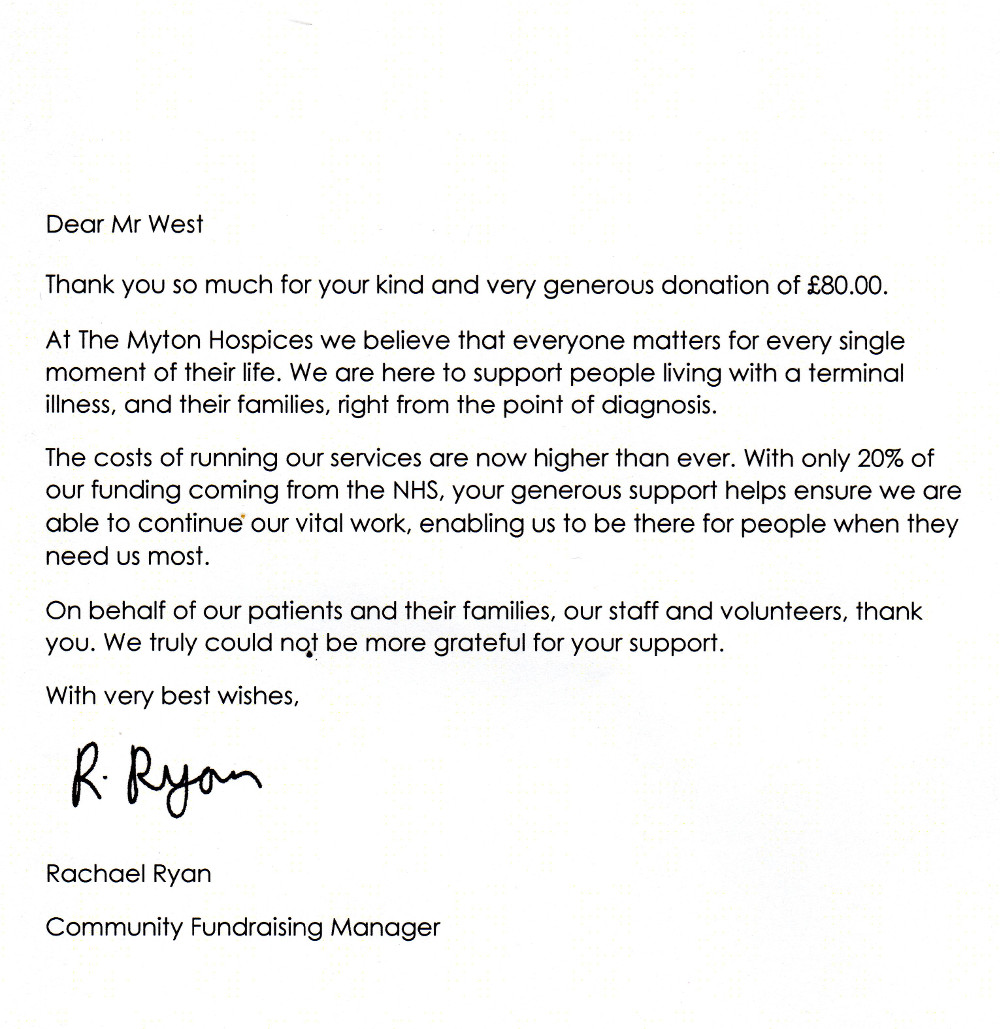
Bees in Iceland
Keeping Bees In Iceland - Really?
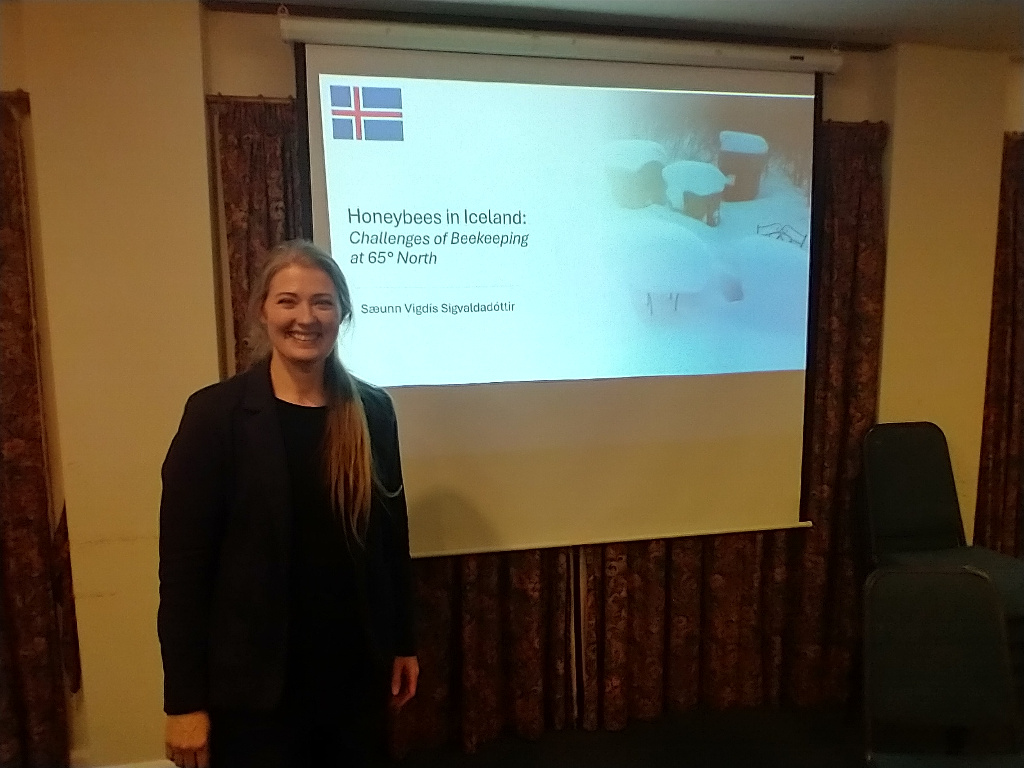
On the 1st of October Rugby Beekeepers were given a presentation by Sæunn Sigvaldadóttir, Sæunn is a beekeeper in Iceland where honey bees aren't really supposed to live. For a part of the year there is 24 hours of daylight, for another part it is almost total darkness, the average temperature is around 4-5 degrees C with lows sometimes reaching -20 and highs hitting the low twenties.
Sæunn ran through the trials and tribulations of trying to keep bees in this environment; obtaining bees was very restricted with imports only allowed from one certified disease free island, Aland. To make things even more difficult, there were no bee equipment supply companies on Iceland, so hives and foundation had to be hand made.
What appeared to be one of the most serious problems was the lack of genetic diversity. Sæunn told us that she thought this was a serious problem, with fairly unproductive queens, quite possibly caused by the genetics of drones. She explained that she had tried to get the Icelandic government to allow imports of bees from the Isle of Mann, but this has yet to be approved. Not wishing to be deterred, she had contacted Dr. Susan Cobey, an expert on bee artificial insemination in the US. After attending a course on how to carry out this process Sæunn has taken this knowledge back to Iceland and hopes to use semen from drones obtained from other locations to increase the genetic diversity of the bee population in Iceland.
All in all, this was a very inspiring talk, especially when we found out that she had only been a beekeeper for around two years. Also, as there were no beginners courses in Iceland, she had attended a course run by the Warwick and Leamington branch!
Starvation warning - 2025
In the last week APHA (The Animal and Plant Health Agency) has issued a warning that it is finding many colonies are extremely low on stores. It is recommended that you check your hives regularly, especially if you have just extracted honey, to make sure your colonies do not succumb to starvation.
For advice on feeding and making up syrup solutions please read this document from the National Bee Unit (NBU)
In addition to starvation, many colonies are being attacked by wasps that seem to be around in large numbers at the minute. We have heard from several members who have lost colonies to wasps over the last few weeks. For more information on how to prevent wasp related losses please read this document from the NBU.
Getting Ready to Extract
This month our apiary training session looked at what we need to do to prepare a hive ready for extract honey.
We need to look for super frames that are fully capped, this ensures the honey is ready for putting into jars as the water content will be below 18-20%
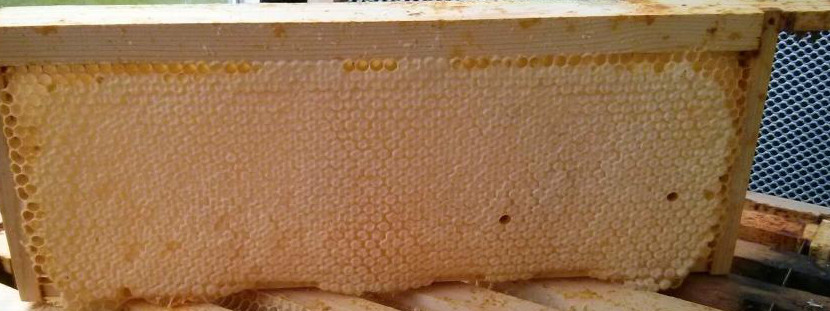
If you extract honey from supers that are not fully capped it is best to test it using a refractometer to check the water content.
We need to clear the bees from the supers and to do this we use a clearer board
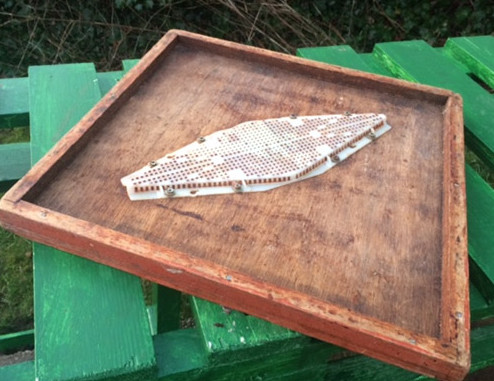
In our apiary we tend to use boards with a rhombus style clearer fitted. They seem to work well and pretty quickly.
Wolston & Brandon Garden Walk-About
On the 29th of June Rugby Beekeepers attended the Wolston & Brandon Garden Walk-About. This an event we have attended in the past and is a lovely event with lots of visitors. lovely gardens and flower displays
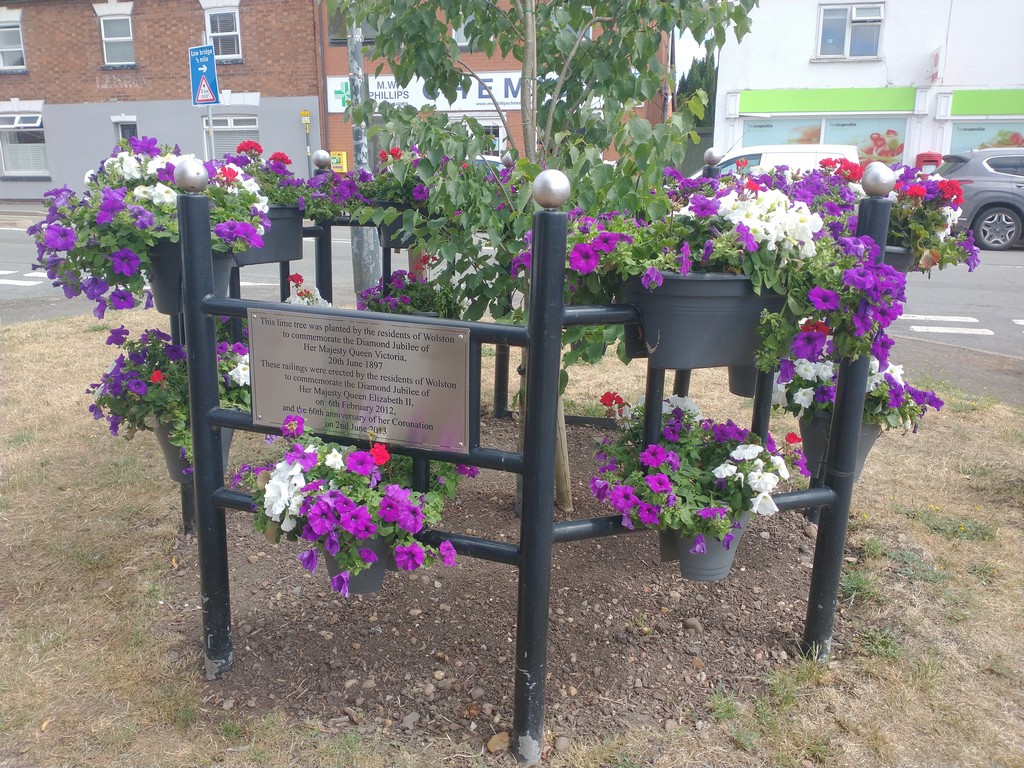
As we attend all the shows during the year with the same marquee and setup the pictures can become a bit repetitive. Here's someone selling honey
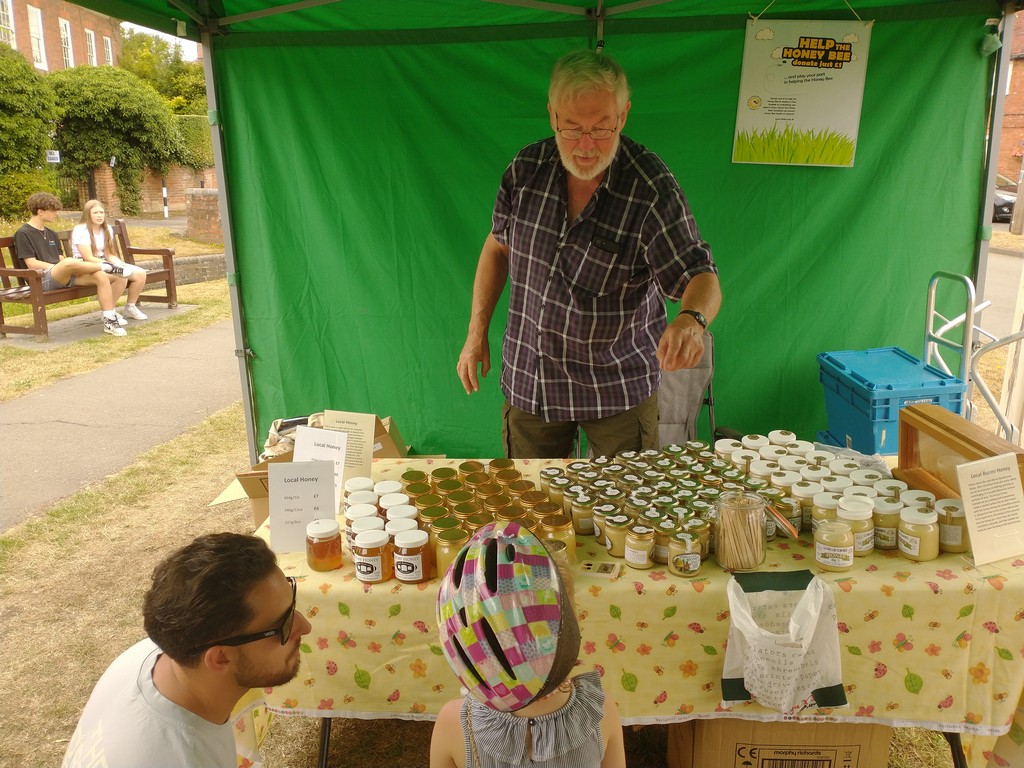
people looking at our observation hive trying to find the queen

Rugby Beekeepers are one of eight associations that are a part of the Warwickshire Beekeepers Association. The Warwickshire Beekeepers Association is a registered charity and our declared charitable goal is to "to advance the education of the public and beekeepers in the craft of beekeeping and promote the importance of bees in the environment". The public events that we attend allow us to do this by interacting with the visitors, explaining what we do, why we do it and more importantly how people can help bees and even become beekeepers. At most events we have a handful of people who really want to find out more about the craft of beekeeping and some of them ask us to put them down on the list of people wishing to attend our beginners' course. More details about this can be found here Details about becoming a member of our association can be found here
Dunchurch show
On Sunday the 22nd June Rugby Beekeepers had a marquee at the Dunchurch show. The show was busy with many visitors coming to see us.
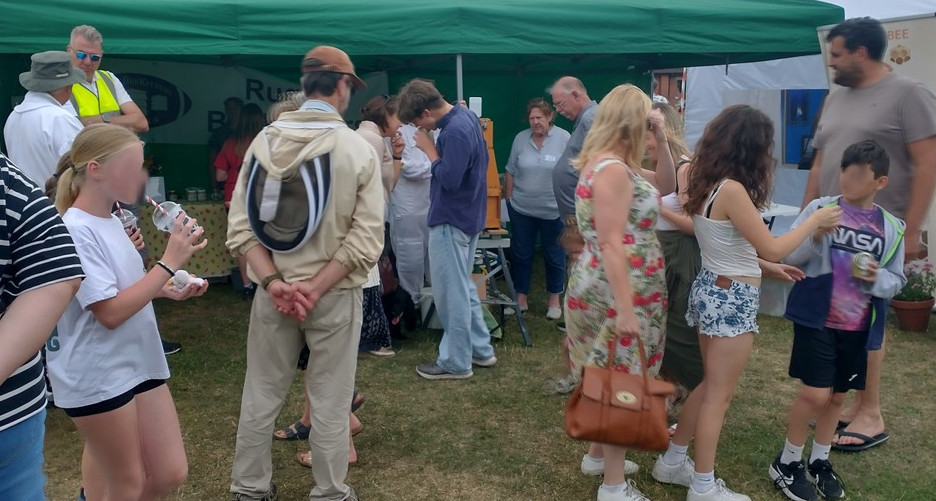
As with all shows the observation hive was a favourite with everyone and despite the queen being quite elusive for the early part of the day she soon appeared and was wandering around doing what queens do!
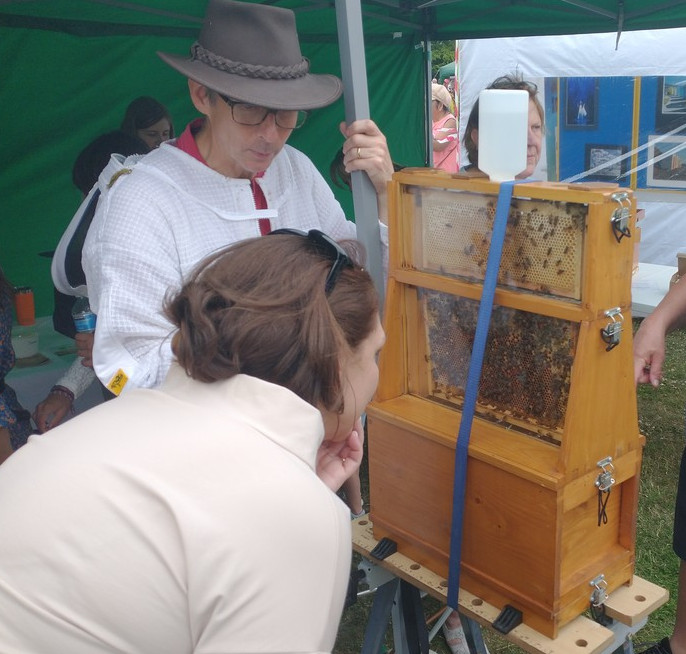
The candle rolling table attracted a lot of the younger visitors who had great fun making their own decorative candles.
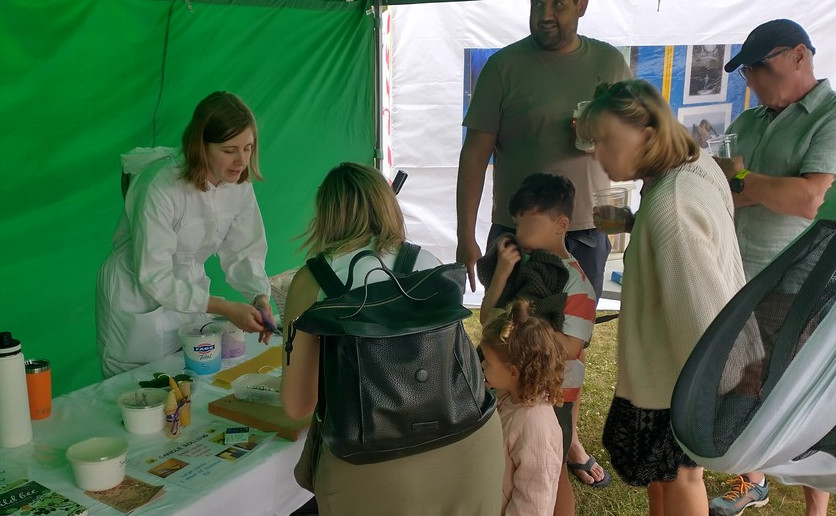
And of course, we had honey produced by our members' bees for sale from across the Rugby area. There also seemed to be great interest coming from hayfever sufferers who hoped it may help alleviate their symptoms.
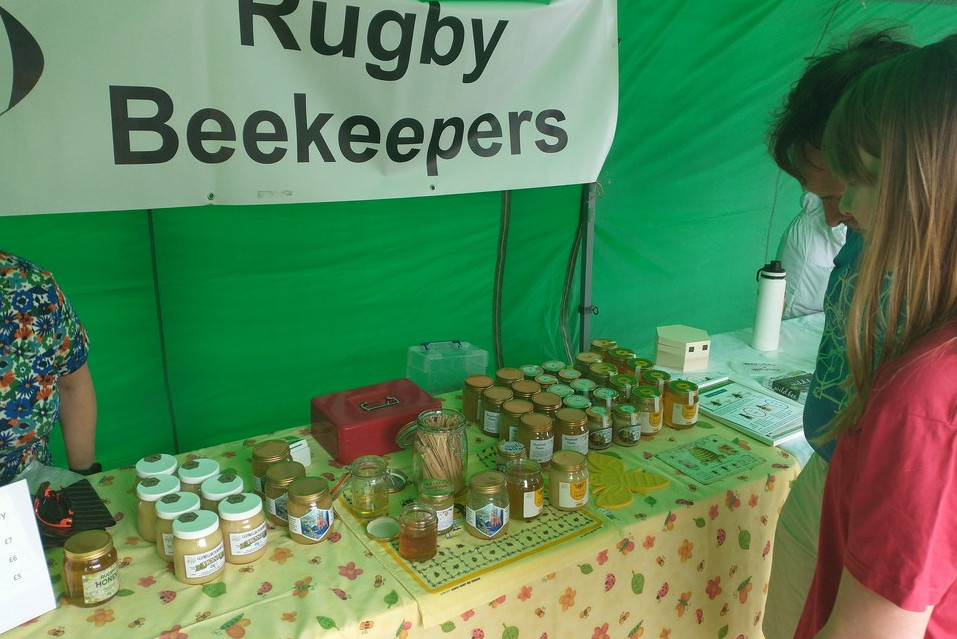
As always the Dunchurch show was a very enjoyable event. Fortunately, the 30 degree heat we had been experiencing in the days leading up to the show had abated so wearing a full bee suit during the show wasn't too uncomfortable.
Disease Inspection Training
Over the weekend we held a training session for our new beekeepers
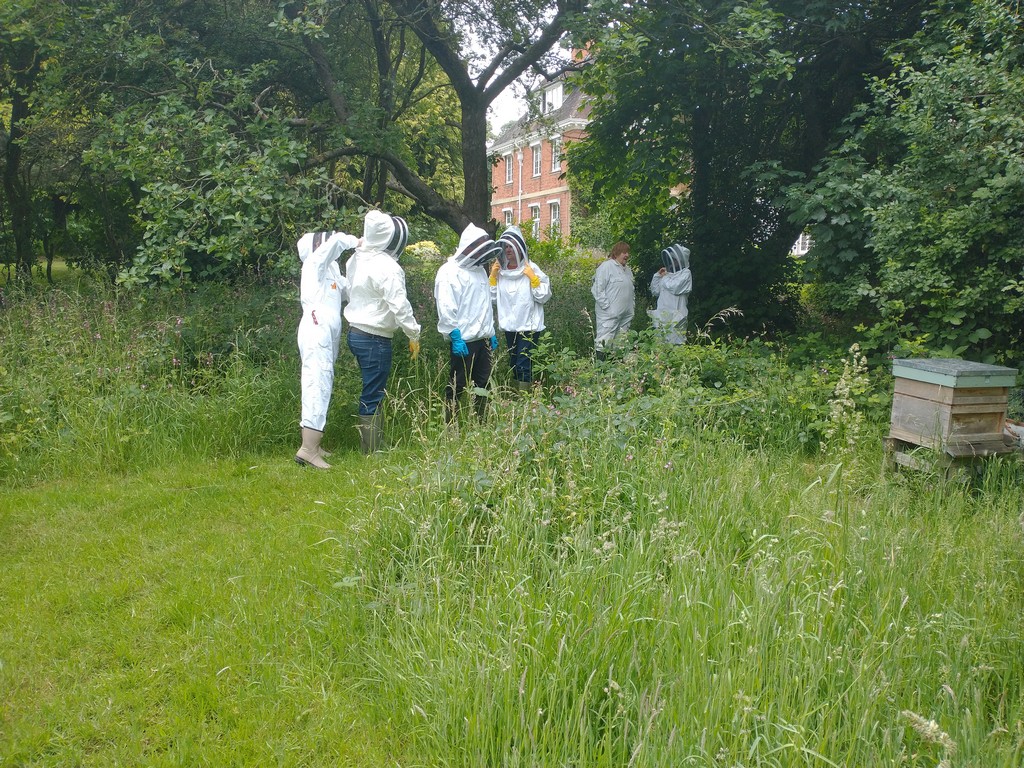
The session was aimed at how to inspect a hive for pests and disease, specifically AFB, EFB, Chalk Brood, Sac Brood, Nosema, Varroa, CBPV and the general heath and well being of the colonies.
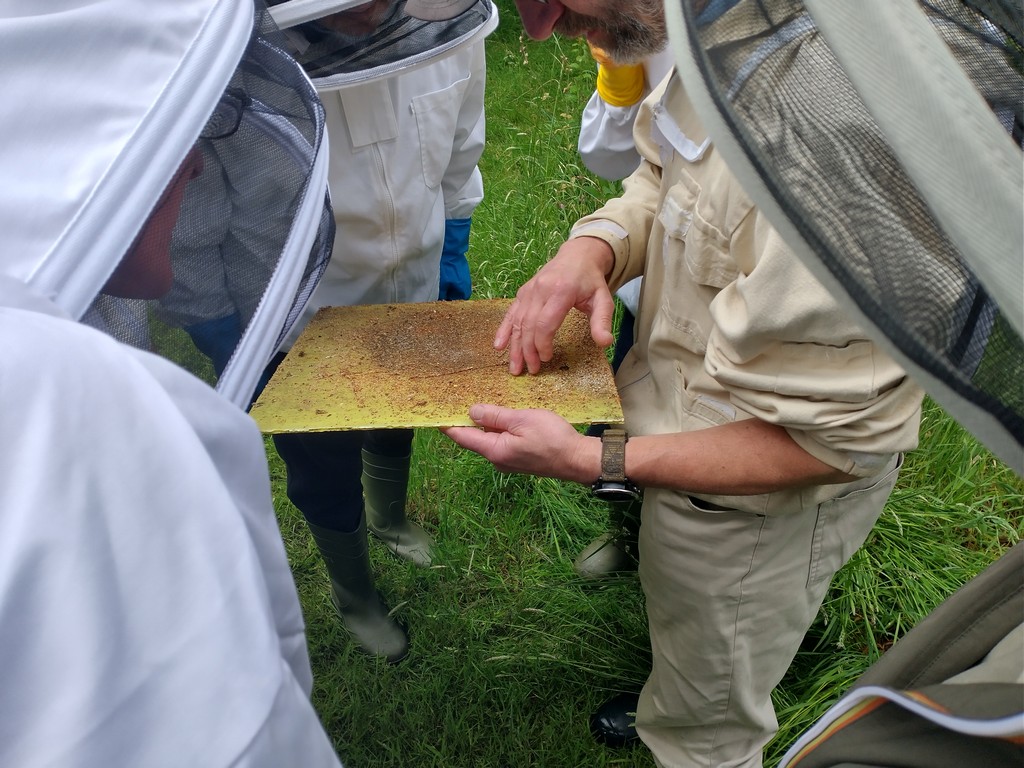
Checking the brood box
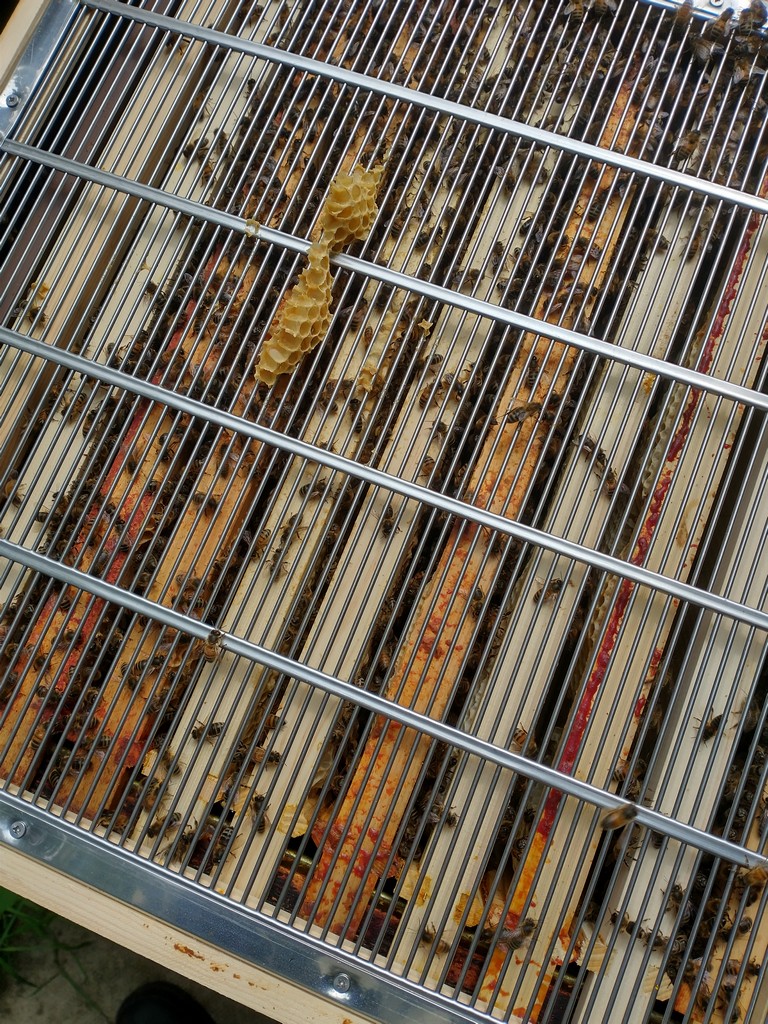
Our new members chilling out in their bee suites
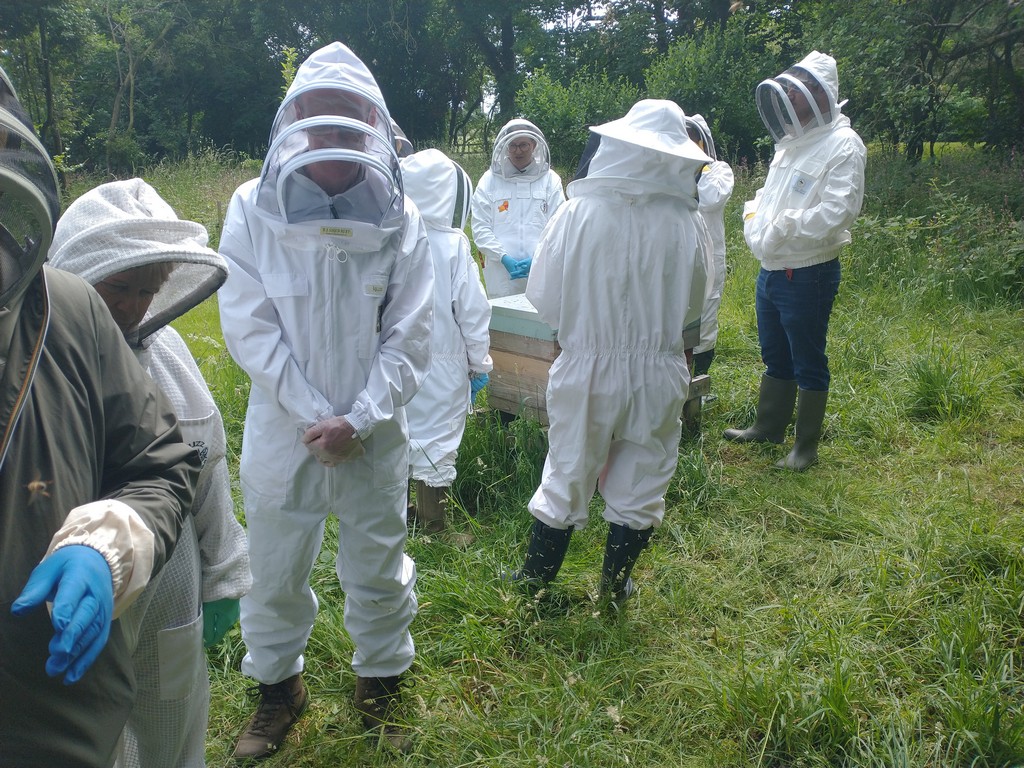
OSR is back
After quite a few years of having no OSR (Oil Seed Rape) being grown by our local farmers, this year there seemed to be quite a few fields of yellow around
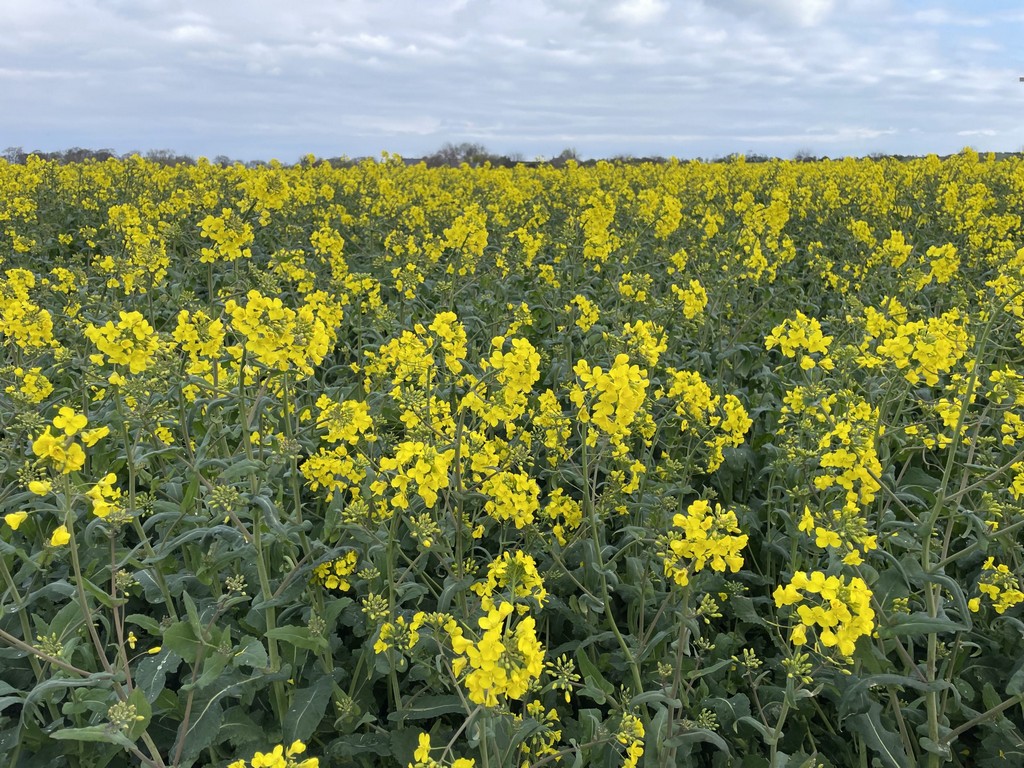
The bees were very busy and this year, at the end of May, one of our members extracted 82lbs of honey from just two hives. This is a lot of honey and shows how OSR can allow the bees to produce a bumper late spring cop of honey.
